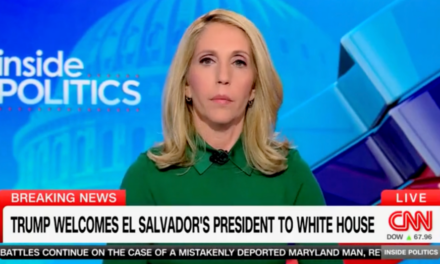In a recent article published by Vanity Fair, a controversial connection was suggested between protein consumption and the political ideology associated with former President Donald Trump’s “Make America Great Again” (MAGA) movement. This claim has ignited a debate surrounding the intersection of health and politics, prompting responses from various medical professionals. Dr. Jane Mitchell, a prominent physician and nutrition expert, vehemently rejected these assertions, arguing that health should remain a neutral subject, devoid of political affiliations.
The Vanity Fair article posited that the rise in popularity of protein-rich diets amongst certain political groups was indicative of broader trends within the MAGA community. It suggested that such dietary choices could serve as a metaphorical reflection of the values and beliefs held by its proponents. According to the article, high-protein diets, often favored by individuals who embrace traditional American ideals, align with the notion of strength and perseverance that the MAGA movement promotes.
However, Dr. Mitchell countered this narrative firmly. “Health doesn’t have a political belief,” she stated during a recent interview. “The idea that consuming protein is somehow linked to political orientation is not only misleading but also dangerous. It creates unnecessary divides in a subject that should unite us all—our well-being.”
Dr. Mitchell went on to elaborate on the benefits of protein in a balanced diet, emphasizing its importance for muscle repair, hormone production, and overall body function. “Protein is a vital macronutrient that plays a crucial role in our health, regardless of our political beliefs. We need to focus on the science behind nutrition rather than conflating it with political identities,” she explained.
This controversy raises several important questions about the broader implications of intertwining politics with personal health decisions. As society becomes more polarized, the risk that various personal choices—especially those regarding diet and exercise—will be politicized increases. This trend can create barriers to healthy living, as individuals may feel pressured to align their choices with those of their political group rather than making decisions based on scientific evidence and personal needs.
Supporters of Dr. Mitchell’s stance argue that the focus on health should remain non-partisan. Nutritionists and health experts across the country have echoed her sentiments, highlighting that health solutions should be accessible to everyone, irrespective of their political beliefs. “There’s a real danger in framing nutrition as a partisan issue,” stated Dr. Emily Sanders, a leader in nutritional science. “It may deter people from making healthy choices if they fear judgment based on their political affiliations.”
The politicization of dietary choices can have significant ramifications on public health campaigns, which traditionally strive to be as inclusive as possible. When health information is perceived through a political lens, it risks alienating individuals who may benefit from that information. Dr. Sanders warned that this divide could lead to a scenario where significant portions of the population disengage from health initiatives due to the political associations tied to those initiatives.
Moreover, the article sparked a passionate response on social media, amplifying the division between differing viewpoints on health and diet in the current political climate. Many users expressed concerns that linking protein consumption with a political ideology could further exacerbate polarization in a time when unity is needed more than ever, especially as the country grapples with various health crises.
This trend has not gone unnoticed by wellness advocates. Groups focused on promoting healthy lifestyles have taken to grassroots campaigns aimed at fostering inclusivity in health discussions. Initiatives such as community cooking classes and nutrition workshops are designed to transcend political boundaries, inviting participants from all walks of life to learn about healthy eating without imposing any political narratives.
In addition to practical efforts, many advocates are calling for a major shift in how health discussions are framed in the media. They urge outlets to prioritize discussing scientific findings in nutrition based on clear, empirical evidence instead of socio-political angles. The hope is to cultivate an environment where individuals feel free to explore dietary choices most suitable for their health without feeling coerced into aligning themselves with a political ideology.
As the narrative evolves, one can appreciate the complexity that exists at the intersection of health and politics. While health is an individual right, it has been increasingly politicized in recent years due to various socio-political movements. This intersectionality can lead to confusion for those seeking reliable health information. In this regard, the responsibility lies with healthcare providers, journalists, and policymakers to ensure that discussions surrounding health remain rooted in scientific expertise rather than political ideology.
Throughout her career, Dr. Mitchell has dedicated herself to educating communities about nutrition in its essence—accessible, evidence-based, and free from political bias. She concluded her remarks with a call to action: “We must prioritize health for all Americans and work collectively to promote well-being. Eating a balanced diet rich in protein should not be about where you fall on the political spectrum, but about taking care of yourself and your loved ones.”
In a rapidly changing landscape where health and political identities are often intertwined, the sentiment shared by Dr. Mitchell serves as a reminder that our focus should always be on fostering healthier lives for everyone. As critical conversations advance, it is vital to keep the conversation about health rooted in fact and evidence, transcending the political narratives that can so easily emerge.
Ultimately, the discussion around the relationship of diet and political beliefs illustrates a broader societal struggle with how we identify ourselves. Food has always been a connector—a source of community and culture—but as the lines between dietary choices and political ideology blur, it raises the question of what we value and prioritize in our society. The health of the population should be a shared goal, free from the divides of partisanship, reminding us that it is essential to unify on fundamental issues like health and nutrition for the greater good.
































